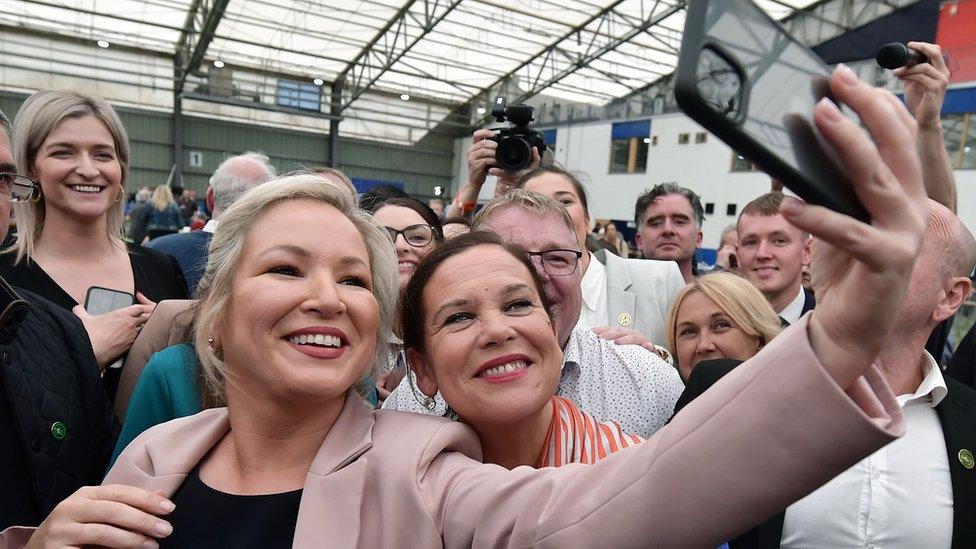UK elections: Conservatives and DUP lose out
- Published
- comments
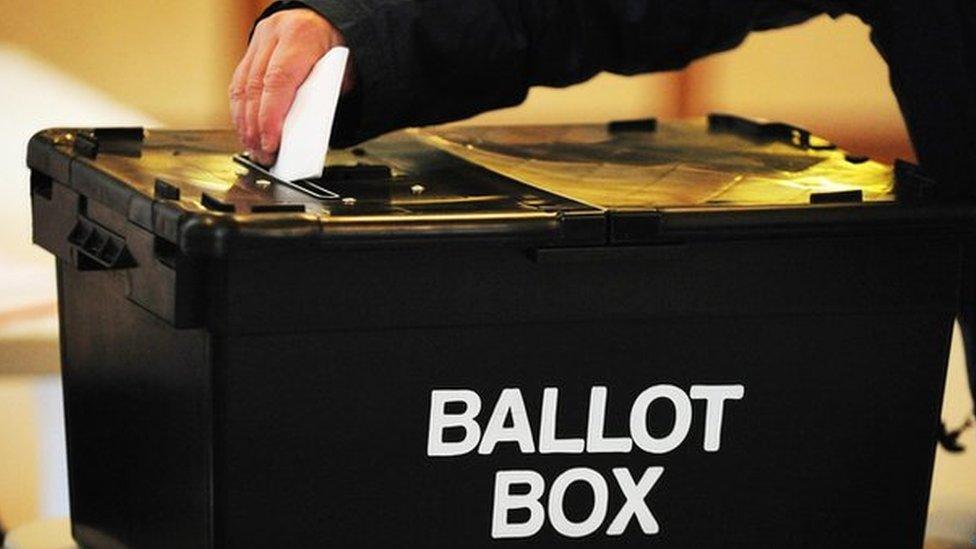
A voter puts their ballot paper into a ballot box
There have been some big changes in election results compared to how people voted last time.
In Northern Ireland many of the votes are still being counted but it looks like nationalist party Sinn Féin is on track to win the most seats, for the first time ever, with unionist party the Democrat Unionist Party set to lose out.
People in Northern Ireland were voting for who they want to be in their government and make decisions for the whole country.
In England, Scotland and Wales they were voting in council elections to have their say on who they want to be in charge in their local area.
England
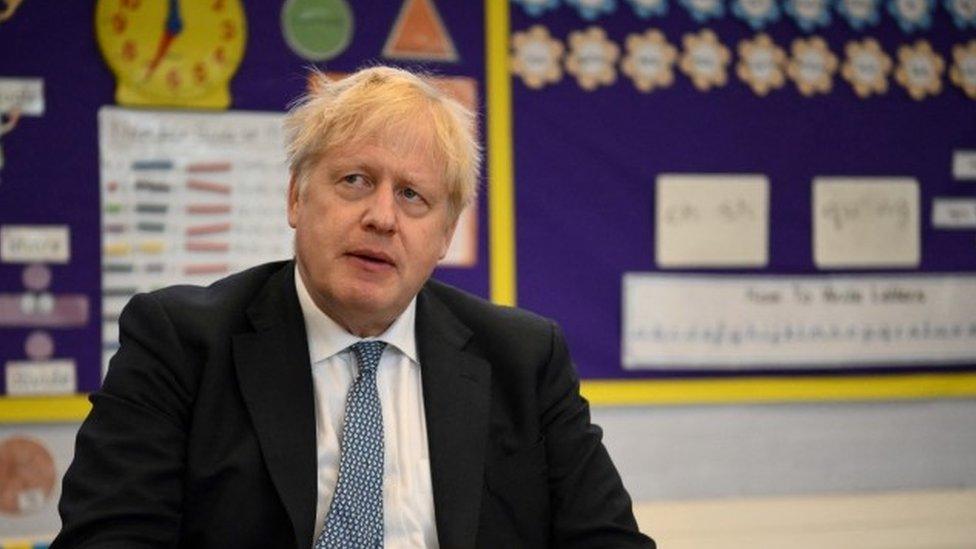
Speaking on a visit to a school in London the PM said it had been a 'tough night in some parts of the country'
The Conservatives suffered significant losses at Thursday's local elections, losing hundreds of seats and control of 10 councils.
Many voters who had backed them last time, put their support behind other parties - with the Liberal Democrats having success in southern England, and Labour having success in London.
Prime Minister Boris Johnson said it had been "tough" in some areas, but argued the results had been mixed overall.
Labour's most significant gains came in London, where the party took the councils of Wandsworth, Westminster and Barnet, ending decades of Conservatives control in each.
The Liberal Democrats saw almost new 200 councillors voted in, taking control of Woking, Gosport and Hull councils.
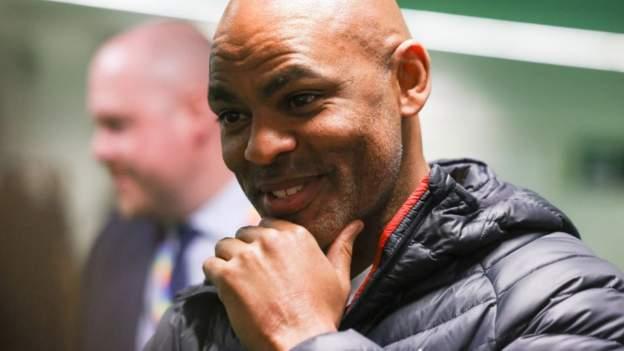
Marvin Rees is Bristol's mayor until the post is abolished in 2024
People in South Yorkshire also voted for a regional mayor, while in another election - a referendum - Bristol has voted to abolish its directly elected mayor role.
The current mayor, is Marvin Rees (Labour), who took up the post in 2016 when Bristol became the first major European city to elect a mayor of black African heritage.
He was re-elected last year but will not have to leave immediately as he will remain in his position until 2024 when a new system comes in.
Northern Ireland
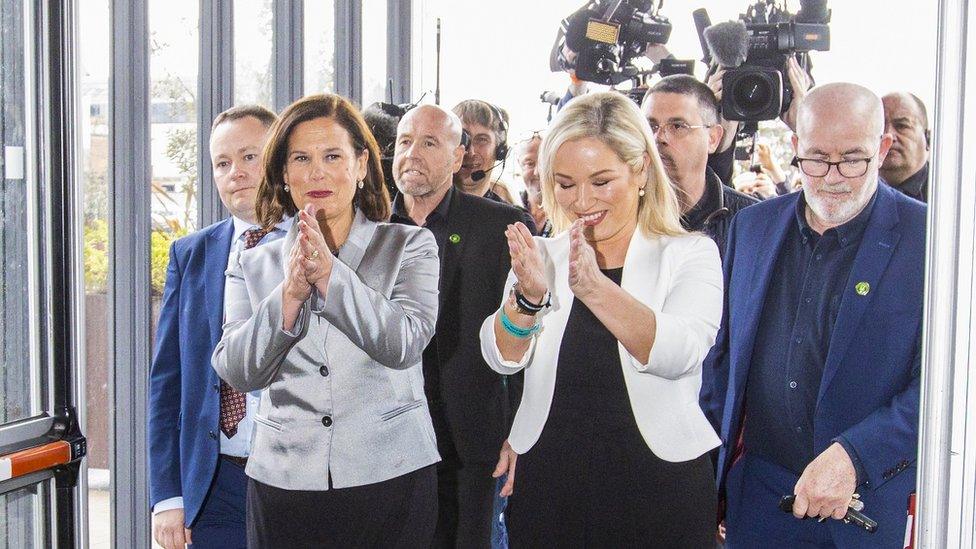
Sinn Féin's Michelle O'Neill, seen here on the right, is hoping to be the first nationalist politician to become NI's first minister
In Northern Ireland, all 90 members of the assembly were up for election and currently Sinn Féin is on track to win the most seats.
The party won the most first-preference votes, and has the largest number of candidates returned so far. Vote counting was paused overnight with more results expected to follow on Saturday.
The Democratic Unionist Party (DUP) and Sinn Féin have both been aiming for the top spot in the election, which gives them the power to nominate the next first minister.
While the office of the first and deputy first minister is an equal one with joint power, the allocation of the titles is regarded as symbolically important.
The Northern Ireland legislative assembly is the devolved government who make decisions on things like health, education and policing.
Voters are electing MLAs - which stands for member of the local assembly - to represent their area.
Scotland
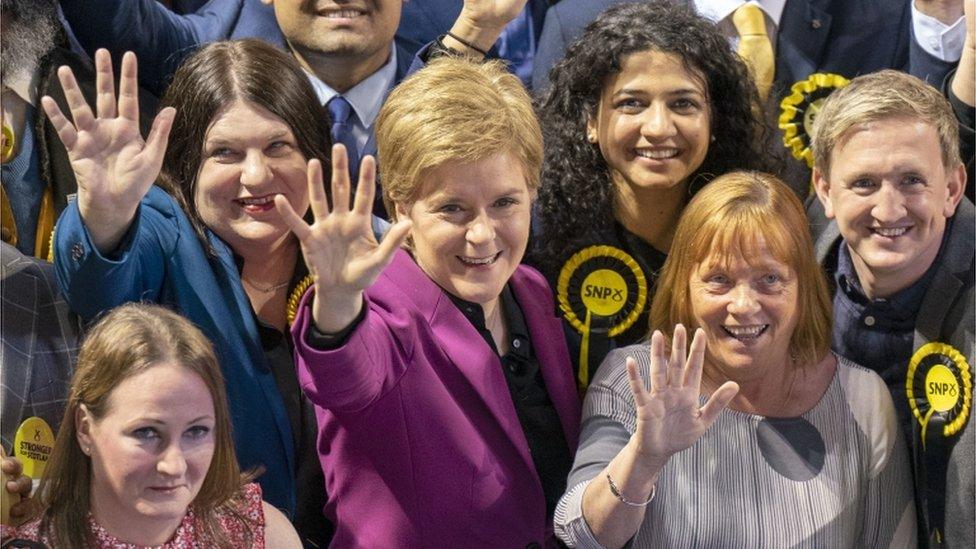
SNP leader Nicola Sturgeon celebrated the party's success with candidates and supporters in Glasgow
In Scotland, a result has been declared for all 32 councils, with the Scottish National Party (SNP) finishing as the largest party, increasing its councillors by 22 to 453.
SNP leader Nicola Sturgeon, the country's first minister, said the result was a "quite incredible outcome" for her party after 15 years in government.
Labour won control of West Dunbartonshire and overtook the Conservatives, but was a distant second to the SNP,
The Conservatives lost more than 60 councillors across the country, a big change from the last elections back in 2017 where it had the second highest number of seats.
The Liberal Democrats and Green party have also managed to secure more seats during this election.
More than 1,200 councillors have been elected across the country's 32 councils.
Each council is divided into smaller areas known as wards, with every ward electing up to five councillors.
Wales
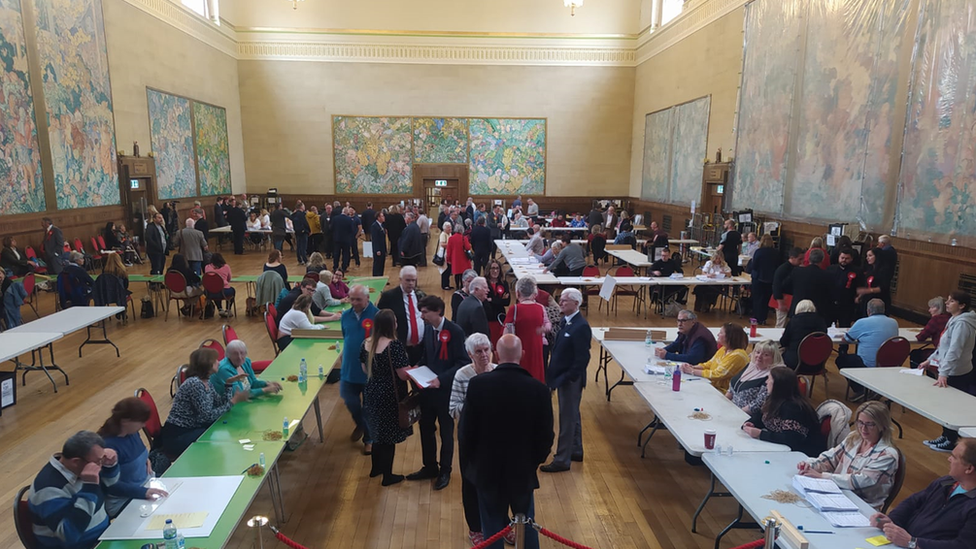
Vote counting at Brangwyn Hall, Swansea
Labour remains the biggest party in Wales, now controlling eight of the country's 22 councils. Welsh Labour leader Mark Drakeford said it had been a "good day for Labour".
Ten other councils will not be in the control of any single party, while Welsh nationalist party, Plaid Cymru, controls four authorities.
Welsh Conservatives have been left with no councils, after losing the area of Monmouthshire.
There are 22 councils in Wales, with a total of 1,234 seats up for grabs.
This election was the first time that 16 and 17-year-olds were able to vote to have their say.
- Published9 May 2022
